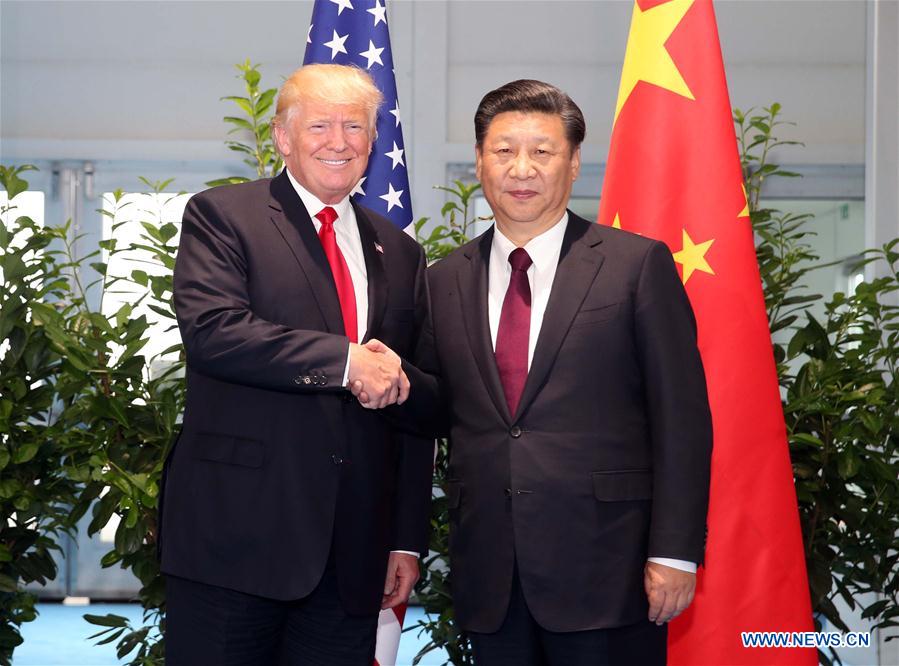
The Asia-Pacific region, well known for its robust economic growth, has continued to enjoy basic stability. The challenges facing the region are highlighted by increasingly-complex security issues, greatly complicating relations between major countries. In recent years, strategic competition between China and the US has loomed large, prompting their relations to take a dark turn.
At the 19th Party Congress last fall, General Secretary Xi Jinping announced that socialism with Chinese characteristics had entered a new era. This “new era” is one of growing Chinese strength coming in the wake of economic development. Greater strength means that China will be far more competitive internationally, which makes it the primary concern of the US.
At the end of 2017, the Trump administration released its first National Security Strategy Report with a key note that reflected popular views of the Washington DC policy circles. It deemed Russia and China the principal challengers of the US-led international order, going so far as to deem the two nations “revisionist” powers for their efforts to upend the status quo. Therefore, the national security strategy of the Trump administration, defense strategy, and nuclear posture assessment reports put power competition with China and Russia higher on the priority list than addressing terrorist threats. In the view of the US, China is the more formidable challenger in terms of overall strength and competitiveness. It therefore made economic relations with China a matter of national security. Such is the backdrop of the heightened American pressure on China’s trade since March.
By redefining China strategically, the US has altered the entire dynamic of their bilateral relations. Countries labelled principal competitors will naturally try to justify the label by fixating on the negatives in their relations and potential worst-case scenarios. This, in turn, creates a snowball effect of negativity which makes it even harder to reconcile their differences. Starting from the second half of the Obama administration, China-US interactions took a turn for the worse. Strategic dialogue became an exercise in reinforcing an existing viewpoint, rather than one of developing effective communication or enhanced mutual understanding. As a result, their talks on trade, commerce, South China Sea, THAAD, and other contentious issues failed to make any meaningful progress. At best, these mechanisms were perfunctory, existing only in name.
At the same time, critical adjustments were taking place in the economic, political and social spheres of both countries. With globalization and tech proliferation surging forward , domestic and foreign policy are more connected than ever. Foreign policy, often driven by shifting domestic events, sometimes becomes the scapegoat of political struggle. With “America First” becoming the US’s guiding principle, there is no longer any discernable distinction between the Trump administration’s domestic policy and its foreign policy. This has brought a remarkable change to the traditional model of foreign policy-making in the US.
What is more, the internet has made it easier for interest groups of all kinds to speak out on foreign policy subjects. The anti-establishment, anti-elite movement has broken open the fiefdom of diplomacy, once reserved only for professionals. In the view of this writer, envoys like Henry Kissinger and Brent Scowcroft who can rise above serious differences and strained relations, and focus on the larger picture and long-term interests and work quietly to seek agreement through compromise, are unlikely to be seen again.
Thus, we may reach the following conclusions.
First, the strategic competition between China and the US comes from the latest shift in the relative balance of power between them. It is a power game at the global scale which, in this multipolar world, will not end anytime soon. Friction and disputes that are associated with strained bilateral relations will be commonplace. Their competition in security-related areas will manifest mainly in the Asia-Pacific region and become a key factor in the discussion of security cooperation in the region.
Second, neither China nor the US can change the course of this historical process alone. At the same time, the strategic competition between the US, the long-standing political, diplomatic, and military hegemon of the world, and China, the rapidly-growing power of the new era, will be kept under proper management and control thanks to their shared recognition of the need to avoid a direct confrontation. They will also enjoy limited cooperation on issues with shared interests, which is why security cooperation in the Asia-Pacific is still useful.
Third, throughout this fragile and uncertain process, political leadership by the top officials is crucial for the development of China-US relations. There is a meaningful personal relationship between President Xi and President Trump. Their timely and effective communication is indispensable for keeping bilateral ties on the track of stability, controlling tensions in regional hotspots, and seeking a basic agreement on the establishment of an Asia-Pacific security cooperation framework.
Fourth, despite current diverging perspectives, pursuits, and goals, China and the US, as two major countries entrusted with important international responsibility, share a tradition of strategic. As the history of China-US relations after World War II indicates, reason, the spirit of going after long-term national interests, and humanity as a whole will prevail in the end in spite of changes and challenges.